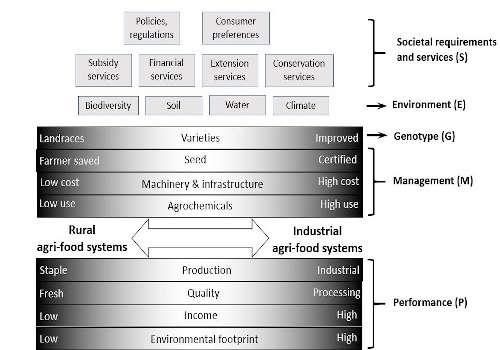Potatoes will play an increasingly important role in global food security in the coming decades. The potato crop is a food source that can help match the urgently needed requirements to transform current agri-food systems worldwide. A recently published paper in Potato Research suggests that the key to meeting this challenge is to produce more potatoes worldwide with the same or fewer resources and reduce crop losses all the way from the farm to the fork of the consumer.
Over the last decades, potato production and consumption have grown in nearly every continent, with around 1.3 billion people now eating potatoes as a staple food. Potato production is shifting towards developing countries with the highest production increases observed particularly in Asia, but also in Africa.
“The challenge is how to increase the global potato supply without increasing inequality or generating negative environmental impacts,” said André Devaux, an agricultural scientist at the International Potato Center (CIP) and lead author of the study. “Our study looked at how potato research and innovation can contribute to sustainable agri-food systems considering the dichotomy of rural- and industrial-based potato agri-food systems.”
As illustrated in the figure below, management factors and performance outputs are depicted as continuums, with extremes showing typical elements that characterize rural (left) or industrial (right) agri-food systems and combinations of both systems in-between.

Achieving sustainable potato production and efficient use of resources requires research and innovation options to adjust to the challenges and transform current cropping and processing systems in both rural and industrial agri-food systems. Devaux and his co-authors suggest that two main options should be considered to increase food security and income generation while reducing the environmental footprint. “We need first to produce more with less through better input management and optimization and secondly produce just as much but waste less, both before and after harvest.”
More with less
More potatoes can be produced using the same or fewer resources by improving the planting material, generating better seed distribution mechanisms, using smart agriculture, and implementing better crop management techniques.
The recent discoveries of the potato genome sequence and the advances in breeding technologies present numerous exciting opportunities to improve potato production. Breeding improved varieties can lead to improvement in nutrient efficiency, pest and disease resistance, tolerance to drought, heat and salinity, as well as reduction of the time from planting to harvest.
The future of sustainable potato production depends on a renewable supply and distribution of pest-free planting material. More than 90% of seed potatoes in developing economies are produced by farmers and are of poor quality, which affects yield. The authors propose an integrated approach to reduce yield losses due to low-quality seed by combining the use of rapid multiplication techniques, improved varieties with resistance to biotic and abiotic stresses, better crop management practices, and improved storage. These seed system challenges faced by potato are common across vegetatively propagated crops. This is why the CGIAR Research Program on Roots, Tubers and Bananas has strongly supported cross-learning and collaborative research across root, tuber and banana crops to advance towards more sustainable seed systems.
Potatoes are highly adaptable and can grow in many types of environments. Remote sensing and geographical information systems tools coupled with decision support systems and precision agriculture technologies may contribute to increased productivity by ensuring potatoes are grown in optimal conditions.
Management practices that increase ecosystem services, such as natural soil fertility or biological control, must be implemented to avoid the ongoing soil degradation in current farming systems. Sustainable soil management will be critical for maintaining or increasing yields in the future.
Click here to see more...